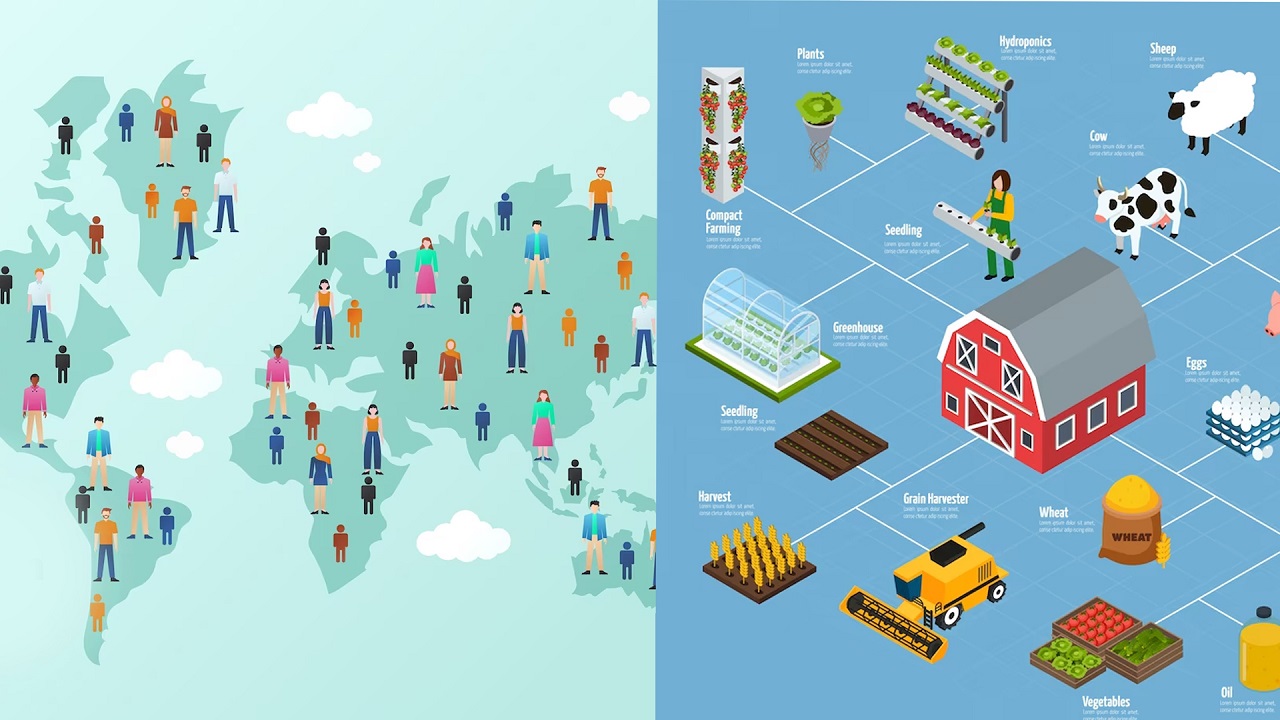Feeding a Growing Planet: Addressing the Challenges of World Population and Food Supply
Navigating the Global Population Boom, Sustainable Agriculture, Resource Management, Climate Change, and Equitable Access to Food for a Nourished Future.

As the global population continues to grow at an unprecedented rate, ensuring food security for all becomes an increasingly pressing challenge. Feeding a growing planet requires addressing numerous complex issues, including sustainable agriculture, resource management, climate change, and equitable distribution. In this blog, we will delve into the challenges posed by the expanding world population and explore potential solutions to sustainably meet the food demands of future generations.
The Challenge of Population Growth
The world's population is projected to reach 9.7 billion by 2050, posing a significant challenge to food production and distribution systems. Rapid urbanization and changing dietary preferences place immense strain on agricultural resources. To feed this growing population, global food production must increase by at least 50%. However, expanding agricultural practices at such a scale raises concerns about deforestation, water scarcity, and biodiversity loss.
Sustainable Agriculture as a Solution
One promising approach to address the challenges of food supply is sustainable agriculture. This involves implementing practices that minimize environmental impact while maximizing productivity. Techniques like precision farming, agroforestry, and organic farming promote soil health, reduce water usage, and minimize chemical inputs. Additionally, embracing innovative technologies such as vertical farming, aquaponics, and hydroponics allows for the efficient use of limited land and resources. Investing in research and development to improve crop yields and enhance the resilience of plants to climate change is also crucial in ensuring sustainable agriculture.
Resource Management and Conservation
Efficient resource management plays a vital role in feeding a growing planet. Proper water management, including efficient irrigation systems and water conservation techniques, is essential. Adopting sustainable land management practices, such as crop rotation, terracing, and integrated pest management, helps preserve soil fertility and reduces the need for synthetic fertilizers and pesticides. Moreover, minimizing post-harvest losses through improved storage facilities, transportation infrastructure, and food processing techniques can significantly enhance food availability and reduce waste.
Mitigating the Impact of Climate Change
Climate change poses significant threats to food security. Rising temperatures, changing rainfall patterns, and increased frequency of extreme weather events disrupt agricultural productivity. Addressing climate change through mitigation strategies like reducing greenhouse gas emissions and adapting to its impacts is essential. This includes transitioning to renewable energy sources, promoting climate-smart agriculture, and developing drought and heat-resistant crop varieties. Farmers also need access to climate information and insurance to mitigate risks associated with climate change.
Promoting Equity and Access
Ensuring equitable access to food is a fundamental aspect of addressing the challenges of food supply. Reducing poverty and improving social safety nets can help vulnerable populations afford nutritious food. Investing in rural infrastructure, education, and healthcare can empower small-scale farmers, particularly women, who play a crucial role in agricultural production. Strengthening local food systems, supporting farmers' markets, and promoting fair trade can enhance food sovereignty and reduce dependence on global supply chains. Collaboration among governments, international organizations, and local communities is crucial to fostering inclusive food systems.
Conclusion
Feeding a growing planet requires a multifaceted approach that addresses the challenges posed by world population growth. Sustainable agriculture, efficient resource management, climate change mitigation, and promoting equity and access to food are key components of the solution. Embracing technological innovations, investing in research and development, and fostering international cooperation is crucial for achieving food security for all. By working together and adopting holistic strategies, we can ensure a sustainable and nourished future for generations to come.
- READ MORE ON:
- Feeding a growing planet
- World population
- Food supply
- Sustainable agriculture
- Resource management
- Climate change
- Equitable distribution
- Global food production
- Urbanization
- Dietary preferences
- Agricultural resources
- Water scarcity
- Biodiversity loss
- Agroforestry
- Organic farming
- Efficient irrigation
- Technological innovations










